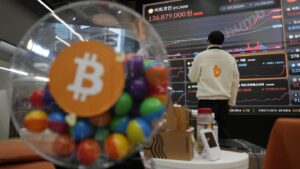The Careful Steps Taken by Singapore to Become a Crypto Hub

Examining Singapore’s approach to regulating the cryptocurrency and digital assets space, this article argues that the city-state offers a model for jurisdictions looking to introduce such entities into financial systems cautiously.
In this article, Bryan Tan, partner at law firm Reed Smith and a member
of its dedicated cryptocurrency and digital assets group,
On-Chain, discusses the regulatory and business
development landscape in Singapore. The editors are pleased to share
these perspectives; the usual editorial disclaimers apply. Join the
conversation by emailing tom.burroughes@wealthbriefing.com
Known for its robust financial sector and
progressive regulatory environment, Singapore has become a key
hub for cryptocurrency and blockchain technology. The country’s
strategic approach, marked by clear regulations and an
innovative mindset, has positioned it favorably within the
global crypto ecosystem. With proactive regulatory frameworks and
a conducive business environment, Singapore’s focus on fintech
innovation, combined with its strategic geographic location, has
attracted numerous blockchain startups and established crypto
firms.
At the core of Singapore’s crypto-friendly environment is its
clear and comprehensive regulatory framework. The Payment
Services Act (PSA), enacted in January 2020, plays a crucial role
in providing regulatory clarity for
cryptocurrency operations. The PSA categorizes various payment
activities, including digital payment token services, under a
unified regulatory framework. This legislation mandates that crypto businesses
obtain licenses to ensure compliance with anti-money
laundering (AML) and counter-terrorist financing (CTF)
regulations.
Singapore’s commitment to fostering innovation is evident through
initiatives like the Singapore FinTech Festival (SFF), which
serves as a platform for global fintech and crypto stakeholders to
collaborate. Established in 2016, it is the largest event of its kind.
Singapore also boasts advanced technological infrastructure,
such as high-speed internet and robust cybersecurity measures,
which are vital for the growth of the crypto sector.
Taking a cautious approach
The Monetary
Authority of Singapore (MAS), the country’s central bank and
financial regulatory authority, has embraced a balanced and
progressive approach towards bitcoin and cryptocurrencies, rather than one of unchecked enthusiasm.
MAS acknowledges the potential of blockchain technology and
digital currencies while stressing the importance of regulation
to mitigate risks associated with cryptocurrencies.
To this end, MAS has issued clear guidelines on the use and
regulation of cryptocurrencies. It differentiates between utility
tokens, which offer access to a service, and security tokens,
which represent ownership or debt. This distinction helps in
applying appropriate regulations based on the nature of the
token. Additionally, applications for PSA licenses undergo rigorous
scrutiny, with many being rejected.
While MAS supports crypto innovation, it also issues
regular warnings to the public regarding the risks of
cryptocurrency investments. These warnings underscore the volatile
nature of digital assets and the importance of conducting
thorough research before investing. Stringent advertising
restrictions have also been implemented.
Retail access to cryptocurrencies in Singapore is well-developed,
facilitated by a growing number of exchanges and crypto
service providers. Nevertheless, MAS maintains that
speculative trading in cryptocurrencies is not suitable for the retail
market and ensures that these services are regulated to
safeguard consumers.
Singapore is a home to several reputable cryptocurrency exchanges
that offer retail investors easy access to buying,
selling, and trading digital assets. These platforms operate in
compliance with the PSA, ensuring a regulated environment that prioritizes
consumer protection.
Among the strictest regulatory regimes globally
Nonetheless, MAS remains steadfast in its commitment to
maintaining and even strengthening its current stance on cryptocurrencies. In a response
published in the Financial Times in September 2023, MAS stated “that cryptocurrencies could be misused for money laundering and pose risks to retail
customers. MAS only grants licenses to cryptocurrency players with robust anti-money laundering controls; the majority of applications have been rejected.”
MAS has also proposed and consulted on a wide range
of regulatory measures to mitigate the risks posed by
cryptocurrencies to retail customers. As these measures are
progressively implemented from the end of this year onwards,
Singapore will have one of the strictest regulatory regimes globally
governing retail access to cryptocurrencies.”
This stance is exemplified in its approach to the bitcoin ETF
(and the upcoming ethereum ETF). While the US, the UK, Hong Kong, and Thailand have approved it in some
capacity for their markets, Singapore has upheld its position.
On the other hand, MAS favors distributed ledger technology
or blockchain, the technology that underpins cryptocurrencies. MAS’s
Project Ubin is a demonstration of its proactive approach. This
collaborative project with the financial industry aims to explore
the use of blockchain for clearing and settling payments and
securities. The successful completion of multiple phases of Project Ubin
has showcased the potential of blockchain technology in enhancing efficiency and reducing costs in financial transactions.
Global comparisons
In contrast to other jurisdictions, Singapore’s approach to
cryptocurrency regulation and retail access is notable for its
clarity and balance. In the US, the regulatory landscape for
cryptocurrencies is fragmented, with varying regulations across states. The Securities and Exchange Commission (SEC)
and the Commodity Futures Trading Commission (CFTC) play
significant roles in regulating crypto activities, but the lack
of a unified national framework creates uncertainties. Retail
access is widespread, with major exchanges operating under stringent
compliance measures. However, the regulatory ambiguity can deter
new entrants.
The European Union is progressing towards a comprehensive regulatory
framework with the proposed Markets in Crypto-Assets (MiCA)
regulation. MiCA aims to establish a standardized approach across EU
member states, offering legal clarity for crypto businesses
and safeguards for investors. Retail access to cryptocurrencies
is expanding, with platforms serving a large user base. Nonetheless,
the regulatory environment is still evolving, and complete
implementation of MiCA is awaited.
Japan has been a pioneer in cryptocurrency regulation, recognizing bitcoin as a legal payment method early on. The Financial
Services Agency (FSA) oversees the regulation of crypto
exchanges, ensuring strict compliance with AML and CTF
regulations. Retail access in Japan is robust, with widespread
adoption of cryptocurrencies for various transactions. The
transparent regulatory environment has fostered a thriving crypto
ecosystem, although the rigorous requirements can pose barriers
to entry for smaller businesses.
Hong Kong, a prominent financial center in Asia, takes a more
laissez-faire approach compared to Singapore. The Securities
and Futures Commission (SFC) regulates cryptocurrency
exchanges that offer trading of at least one security token,
while other crypto activities remain largely unregulated. Retail
access is facilitated by numerous exchanges and OTC
platforms.
Singapore’s strategic approach to cryptocurrency regulation,
characterized by clear and comprehensive frameworks, proactive
support for innovation, and a balanced stance by MAS, has
positioned it as a leading crypto hub for serious players. The
country’s commitment to fostering a secure and transparent
environment for both businesses and retail investors distinguishes it
from other jurisdictions.
As the regulatory landscape continues to evolve globally,
Singapore’s focus on transparency, consumer protection, and
technological advancement positions it as a potential model for
other nations looking to cautiously integrate cryptocurrencies
into their financial systems.
Source link
#Singapores #Cautious #Development #Path #Crypto #Hub





